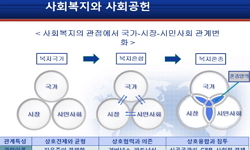By examining the relationship between a country’s macroeconomic and institutional background and the individual firm’s ESG performance while focusing on ESG data set of 68 Korea’s firms, 79 Chinese firms and 353 Japanese firms over the period 20...
http://chineseinput.net/에서 pinyin(병음)방식으로 중국어를 변환할 수 있습니다.
변환된 중국어를 복사하여 사용하시면 됩니다.
- 中文 을 입력하시려면 zhongwen을 입력하시고 space를누르시면됩니다.
- 北京 을 입력하시려면 beijing을 입력하시고 space를 누르시면 됩니다.

아시아 주요 국가 기업들의 ESG 성과의 결정요인에 대한 연구 = A Study on the Determinant Factors of ESG Performance in Individual Firms in Three Asian Countries
한글로보기부가정보
다국어 초록 (Multilingual Abstract)
It possible to use the results of this study’s empirical analysis to draw the following four conclusions. First, 79 Chinese firms show a relative low performance in the Governance (G) pillar. 353 Japanese firms show a low value in the Social (S) pillar over the 2011-2020 period. In case of the 68 Korean firms, relatively high performance can be seen in all three ESG pillars. Additionally, the ESG performance of 79 Chinese firms has been drastically increasing since 2016. Second, the macro-economic situation of the countries differently impacts the individual companies. For example, the size of the stock market has a positive impact on the ESG performance of Korea’s and Chinese firms. Additionally, the positive impact of the country’s institutional background ESG performance is apparent in the individual firms in all three countries. Third, the strong positive relationship between the institutional index and Environmental pillar can be seen in 79 Chinese firms, whereas it shows a strong positive relationship with the Governance pillar in 68 Korean firms. In case of the 353 Japanese firms, such a tendency is relatively low. Finally, a strong positive relationship between the institutional index and ESG performance can be seen primarily in companies that show highly volatile ESG performance values. This is seen in companies that had an above average increase in ESG performance, and companies’ whose performance decreased below average over the 2011 to 2020 period.
By examining the relationship between a country’s macroeconomic and institutional background and the individual firm’s ESG performance while focusing on ESG data set of 68 Korea’s firms, 79 Chinese firms and 353 Japanese firms over the period 2011 – 2020, this paper analyzes how the stable economic and institutional background of a country affects companies’ ESG performance.
It possible to use the results of this study’s empirical analysis to draw the following four conclusions. First, 79 Chinese firms show a relative low performance in the Governance (G) pillar. 353 Japanese firms show a low value in the Social (S) pillar over the 2011-2020 period. In case of the 68 Korean firms, relatively high performance can be seen in all three ESG pillars. Additionally, the ESG performance of 79 Chinese firms has been drastically increasing since 2016. Second, the macro-economic situation of the countries differently impacts the individual companies. For example, the size of the stock market has a positive impact on the ESG performance of Korea’s and Chinese firms. Additionally, the positive impact of the country’s institutional background ESG performance is apparent in the individual firms in all three countries. Third, the strong positive relationship between the institutional index and Environmental pillar can be seen in 79 Chinese firms, whereas it shows a strong positive relationship with the Governance pillar in 68 Korean firms. In case of the 353 Japanese firms, such a tendency is relatively low. Finally, a strong positive relationship between the institutional index and ESG performance can be seen primarily in companies that show highly volatile ESG performance values. This is seen in companies that had an above average increase in ESG performance, and companies’ whose performance decreased below average over the 2011 to 2020 period.
국문 초록 (Abstract)
본 연구의 실증분석 결과는 다음과 같다.
첫째, 전체 500개 기업의 ESG 지수의 분석결과, 중국의 79개 기업의 경우 기업지배구조(G) 분야에서 낮은 수치를 보였으며, 일본의 기업들은 사회(S) 분 야에서 상대적으로 낮은 수치를 보였다. 그러나 중국의 ESG의 성과는 2016년부 터 급성장하여 2020년에는 일본과 비슷한 수치를 보였으며, 한국과 일본의 기업 들은 일정한 수준의 패턴을 유지하며 점진적으로 성장하고 있었다. 둘째, 해당 국가의 거시경제의 요인은 각 국가에 속한 개별 기업들의 ESG에 미치는 영향이 다르게 나타났으며, 주식시장의 규모는 한국과 중국의 기업들의 ESG 성과에 (+)의 영향을 미치고 있었다. 또한 해당 국가의 정책 및 제도적 환경을 의미하는 제도지수는 중국 기업들의 ESG 성과와 강한 (+)의 관계를 보였다. 셋째, 중국의 기업들의 경우 제도지수와 환경(E) 분야에서 (+)의 관계의 정도가 가장 높은 것으로 나타났다. 한국의 기업들은 지배구조(G) 분야의 성과와 제도지수와의 유의한 정도가 강한 것으로 나타난 반면, 일본의 기업들의 경우에는 다른 국가의 기업들과 비교하여 변수들간의 유의성과 그 정도가 상대적으로 낮게 나타났다. 넷째, 국가의 정책 및 제도환경을 의미하는 제도지수와 ESG 성과와의 관계는 ESG의 변동성이 상대적으로 큰 평균 이상 상승 기업들과 하락한 기업들에게서 (+)의 관계가 발견되었으며, 특히 ESG의 성과가 하락한 기업들에게서 (+)의 관 계가 더 강하게 나타났다.
본 연구는 한국의 68개 기업과 중국의 79개의 기업, 그리고 일본의 353개 기업 등 총 500개의 기업을 대상으로 2011년부터 2020년까지 10년간의 ESG 성과자료를 이용, 국가의 경제 및 정책과 제도의 ...
본 연구는 한국의 68개 기업과 중국의 79개의 기업, 그리고 일본의 353개 기업 등 총 500개의 기업을 대상으로 2011년부터 2020년까지 10년간의 ESG 성과자료를 이용, 국가의 경제 및 정책과 제도의 환경이 해당 국가 기업들의 ESG의 성과에 어떠한 영향을 미쳤는지를 분석하고 있다.
본 연구의 실증분석 결과는 다음과 같다.
첫째, 전체 500개 기업의 ESG 지수의 분석결과, 중국의 79개 기업의 경우 기업지배구조(G) 분야에서 낮은 수치를 보였으며, 일본의 기업들은 사회(S) 분 야에서 상대적으로 낮은 수치를 보였다. 그러나 중국의 ESG의 성과는 2016년부 터 급성장하여 2020년에는 일본과 비슷한 수치를 보였으며, 한국과 일본의 기업 들은 일정한 수준의 패턴을 유지하며 점진적으로 성장하고 있었다. 둘째, 해당 국가의 거시경제의 요인은 각 국가에 속한 개별 기업들의 ESG에 미치는 영향이 다르게 나타났으며, 주식시장의 규모는 한국과 중국의 기업들의 ESG 성과에 (+)의 영향을 미치고 있었다. 또한 해당 국가의 정책 및 제도적 환경을 의미하는 제도지수는 중국 기업들의 ESG 성과와 강한 (+)의 관계를 보였다. 셋째, 중국의 기업들의 경우 제도지수와 환경(E) 분야에서 (+)의 관계의 정도가 가장 높은 것으로 나타났다. 한국의 기업들은 지배구조(G) 분야의 성과와 제도지수와의 유의한 정도가 강한 것으로 나타난 반면, 일본의 기업들의 경우에는 다른 국가의 기업들과 비교하여 변수들간의 유의성과 그 정도가 상대적으로 낮게 나타났다. 넷째, 국가의 정책 및 제도환경을 의미하는 제도지수와 ESG 성과와의 관계는 ESG의 변동성이 상대적으로 큰 평균 이상 상승 기업들과 하락한 기업들에게서 (+)의 관계가 발견되었으며, 특히 ESG의 성과가 하락한 기업들에게서 (+)의 관 계가 더 강하게 나타났다.
참고문헌 (Reference)
1 한완선, "환경성과와 재무성과" 한국산업경제학회 17 (17): 1877-1891, 2004
2 박현일 ; 김민정 ; 강호영 ; 이원기, "기업의 사회적 책임수준에 따른 기업가치와 기업명성 차이" 한국회계정보학회 13 (13): 201-219, 2013
3 대외경제정책연구원, "글로벌 ESG 동향 및 국가의 전략적 역할" 2021
4 Campbell, J. L., "Why Would Corporations Behave in Social Responsible Ways? An Institutional Theory of Corporate Social Responsibility" 32 : 946-967, 2007
5 Palmer, K., "Tightening environmental standards: the benefit-cost or the no-cost paradigm?" 9 (9): 119-132, 1995
6 Godfrey, P. C., "The relationship between corporate social responsibility and shareholder value: An empirical test of the risk management hypothesis" 30 : 425-445, 2009
7 Beurden P., "The Worth of Value - A Literature Review on the Relation Between Corporate Social and Financial Performance" 82 : 407-424, 2008
8 Lin, C. H., "The Impact of corporate Social Responsibility on Financial Performance: Evidence From Business in Taiwan" 31 : 56-63, 2009
9 Yamaguchi, K., "Static and Dynamic Return On Corporate Environmental Investment Activity:Empirical Evidence From Japan" 36 : 1-12, 2008
10 Borgers, A., "Stakeholder relations and stock returns:On errors in investors’ expectations and learning" 22 : 159-175, 2013
1 한완선, "환경성과와 재무성과" 한국산업경제학회 17 (17): 1877-1891, 2004
2 박현일 ; 김민정 ; 강호영 ; 이원기, "기업의 사회적 책임수준에 따른 기업가치와 기업명성 차이" 한국회계정보학회 13 (13): 201-219, 2013
3 대외경제정책연구원, "글로벌 ESG 동향 및 국가의 전략적 역할" 2021
4 Campbell, J. L., "Why Would Corporations Behave in Social Responsible Ways? An Institutional Theory of Corporate Social Responsibility" 32 : 946-967, 2007
5 Palmer, K., "Tightening environmental standards: the benefit-cost or the no-cost paradigm?" 9 (9): 119-132, 1995
6 Godfrey, P. C., "The relationship between corporate social responsibility and shareholder value: An empirical test of the risk management hypothesis" 30 : 425-445, 2009
7 Beurden P., "The Worth of Value - A Literature Review on the Relation Between Corporate Social and Financial Performance" 82 : 407-424, 2008
8 Lin, C. H., "The Impact of corporate Social Responsibility on Financial Performance: Evidence From Business in Taiwan" 31 : 56-63, 2009
9 Yamaguchi, K., "Static and Dynamic Return On Corporate Environmental Investment Activity:Empirical Evidence From Japan" 36 : 1-12, 2008
10 Borgers, A., "Stakeholder relations and stock returns:On errors in investors’ expectations and learning" 22 : 159-175, 2013
11 Skouloudis, A., "Revisiting the National Corporate Social Responsibility Index" MPRA 1-23, 2014
12 Gjølberg, M., "Measuring The Immeasurable?" 25 (25): 10-22, 2009
13 육근효 ; 최미화, "Linking Financial Performance and Ownership Structure to Corporate Social Performance" 한국공인회계사회 53 (53): 303-331, 2011
14 Bebchuk, L. A., "Learning and the disappearing association between governance and returns" 108 (108): 323-348, 2013
15 Neubaum, D. O., "Institutional ownership and corporate social performance:the moderating effects of investment horizon, activism and coordination" 32 (32): 108-131, 2006
16 Sarma, M., "Index of Financial Inclusion" ICRIER 2008
17 Balatbat, Maria, "ESG Scores and its Influence on firm performance: Australian Evidence,’School of Accounting Seminar Series" The University of New South Wales 2012
18 Edams, A., "Does the stock market fully value intangibles? Employee satisfaction and equity prices" 101 : 621-640, 2011
19 Hatch, M. J., "Designing a positive image: corporate branding and Social responsibility" 3 : 35-55, 2009
20 Nelling, E., "Corporate social responsibility and financial performance: the ‘vicious cycle’ revisited" 32 (32): 197-209, 2009
21 Jo, H., "Corporate governance and Firm Value: The Impact of Corporate Social Responsibility" 103 (103): 351-383, 2011
22 Orlitzky, M., "Corporate Social and Financial Performance:A Meta-Analysis" 24 : 403-441, 2003
23 Barnea, A., "Corporate Social Responsibility as a Conflict Between Owners" Center for Responsible Business 2005
24 Nollet, J., "Corporate Social Responsibility and Financial Performance: A Non-linear and Disaggregated Approach" 52 (52): 400-407, 2016
25 Gregory, A., "Corporate Social Performance, Competitive Advantage, Earnings Persistence and Firm Value" 43 (43): 3-30, 2016
26 Hoskisson R. E., "Corporate Divestiture Intensity in Restructuring Firms: Effects of Governance, Strategy, and Performance" 37 : 1207-1251, 1994
27 허미옥 ; 정기한, "CSR성과와 기업가치에 관한 연구 : 기업명성의 매개효과를 중심으로" 한국산업경제학회 23 (23): 749-771, 2010
28 김성우 ; 이미영 ; 이기환, "CSR 세부항목이 산업별 기업가치에 미치는 영향" 한국기업경영학회 21 (21): 47-66, 2014
29 백승관, "ASEAN+3의 금융 및 경제협력과 제도의 질: 평가와 전망" 한국국제금융학회 5 (5): 5-43, 2015
30 김종희, "A Study on the Impact of Firm Size on the Threshold Point from Nonlinear Relationship between CSR and Firm Value" The Institute of Management and Economy Research 11 (11): 207-233, 2020
31 Lu, W., "A Decade’s Debate on the Nexus between Corporate Social and Corporate Financial Performance: A Critical Review of Empirical Studies 2002-2011" 79 : 195-206, 2014
동일학술지(권/호) 다른 논문
분석정보
인용정보 인용지수 설명보기
학술지 이력
| 연월일 | 이력구분 | 이력상세 | 등재구분 |
|---|---|---|---|
| 2028 | 평가예정 | 재인증평가 신청대상 (재인증) | |
| 2022-01-01 | 평가 | 등재학술지 유지 (재인증) |  |
| 2019-01-01 | 평가 | 등재학술지 유지 (계속평가) |  |
| 2016-01-01 | 평가 | 등재학술지 선정 (계속평가) |  |
| 2014-01-01 | 평가 | 등재후보학술지 선정 (신규평가) |  |
학술지 인용정보
| 기준연도 | WOS-KCI 통합IF(2년) | KCIF(2년) | KCIF(3년) |
|---|---|---|---|
| 2016 | 0 | 0 | 0.04 |
| KCIF(4년) | KCIF(5년) | 중심성지수(3년) | 즉시성지수 |
| 0.18 | 0.14 | 0.486 | 0 |





 KCI
KCI







